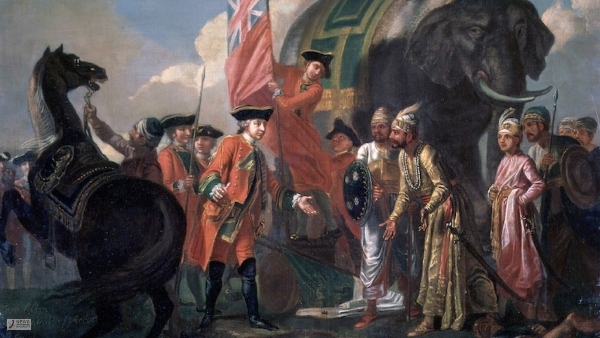The Zamindari system in British India
The Zamindari system was introduced by Lord Cornwallis in 1793.
Total Views |
The Zamindars were a class of hereditary landowners in British India. They were typically wealthy and influential and held a great deal of power over the peasants who worked on their land. The Zamindars were responsible for collecting revenue from the peasants and then paying a fixed sum to the British government.

The Zamindari system was introduced by Lord Cornwallis in 1793. Cornwallis believed that the Zamindars would be more efficient at collecting revenue than the British government could be. He also believed that the Zamindars would use their wealth and influence to improve the lives of the peasants.
However, the Zamindari system did not have the desired effect. The Zamindars were often corrupt and oppressive, and they often extracted more revenue from the peasants than they were required to pay to the British government. This led to widespread poverty and discontent among the peasantry.
Also Read: Princely States: Who were the rulers?
The Zamindari system was eventually abolished in 1950 after India gained independence. The abolition of the Zamindari system was a major step forward for the peasantry, and it helped to improve their lives.
Here are some of the features of the Zamindari system:
- The Zamindars were hereditary landowners.
- They were responsible for collecting revenue from the peasants.
- They paid a fixed sum to the British government.
- They were often corrupt and oppressive.
- The system was abolished in 1950.
Here are some of the effects of the Zamindari system:
- It led to widespread poverty and discontent among the peasantry.
- It helped to create a class of wealthy and influential landowners.
- It contributed to the growth of the British economy.
- It helped to shape the social and political landscape of India.
The Zamindars have a long history in Pakistan, dating back to the Mughal Empire.
During the Mughal Empire, the Zamindars were responsible for collecting taxes from the peasants and then paying a portion of that tax to the Mughal government. The Zamindars also had the power to dispense justice and settle disputes among the peasants.
After the fall of the Mughal Empire, the Zamindars continued to play an important role in Pakistani society. They were often appointed as local officials by the British colonial government. The Zamindars also continued to collect taxes from the peasants and to dispense justice. After Pakistan gained independence in 1947, the Zamindars were still a powerful force in Pakistani society. They continued to own large tracts of land and control the lives of the peasants who worked on their land. In recent years, the Zamindars have faced increasing challenges from the Pakistani government. The government introduced land reforms that aimed to reduce the power of the Zamindars and to give more land to the peasants. The government has also cracked down on the Zamindars who have been accused of corruption and oppression. Despite these challenges, the Zamindars remain a powerful force in Pakistani society. They continue to own large tracts of land and control the lives of the peasants who work on their land. The Zamindars are also a major force in Pakistani politics. They often use their wealth and influence to support political candidates who will protect their interests.
Also Read: The Zamindari and the Princely States
The Zamindars are a complex and controversial group of people. They have played an important role in Pakistani history, and they continue to be a major force in Pakistani society. The Zamindars are a reminder of the country's feudal past, and they are a challenge to the government's efforts to create a more equitable society. The Zamindars of today are a diverse group of people. They come from all walks of life, and they have different levels of wealth and influence. However, they all share one thing in common: they own large tracts of land. The Zamindars are a powerful force in Pakistani society. They control a significant amount of land, and they have a great deal of influence over the government. They are also a major force in Pakistani politics. They often use their wealth and influence to support political candidates who will protect their interests. The Zamindars are a controversial group of people. They are often accused of being corrupt and oppressive. However, they also play an important role in Pakistani society. They are major employers, and they provide a source of income for many people.

